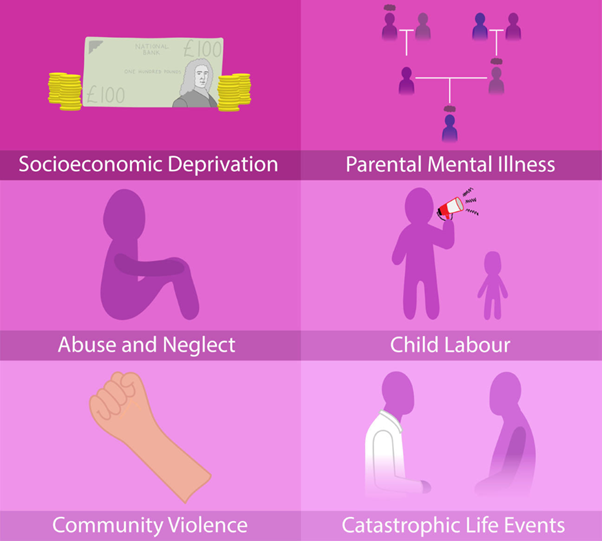This article is from the free online
Post-Traumatic Stress Disorder (PTSD) in the Global Context


Reach your personal and professional goals
Unlock access to hundreds of expert online courses and degrees from top universities and educators to gain accredited qualifications and professional CV-building certificates.
Join over 18 million learners to launch, switch or build upon your career, all at your own pace, across a wide range of topic areas.

 The image illustrates several potential sources of life adversity and trauma including socioeconomic deprivation, parental mental illness, abuse and neglect, child labour, community violence, and catastrophic life events
The image illustrates several potential sources of life adversity and trauma including socioeconomic deprivation, parental mental illness, abuse and neglect, child labour, community violence, and catastrophic life events 





